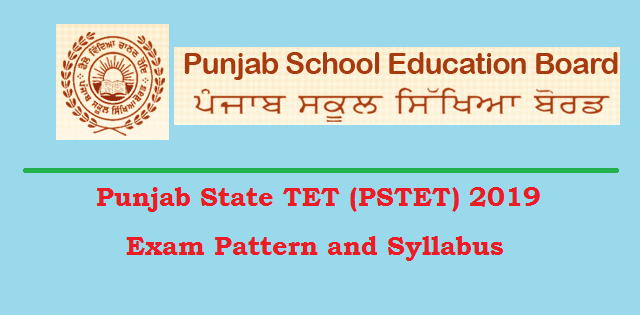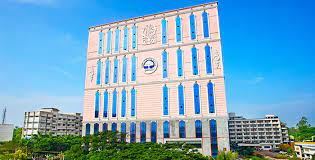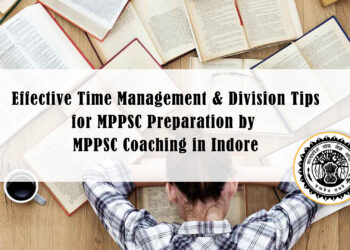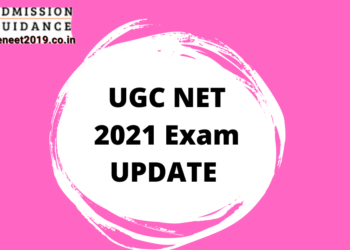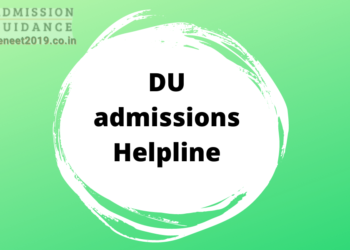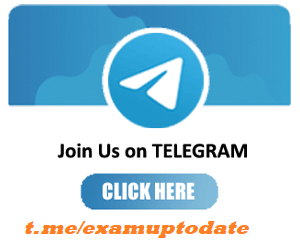PSTET 2019: Punjab State Teacher Eligibility Test (Punjab TET 2019) is a state-level test conducted for the candidates who want to be a teacher in Punjab State. the test is conducted under the supervision of the State Council of Educational Research and Training, Punjab (SCERT, Punjab). Aspirants can pursue their career in this profile after completing their graduation in any of the streams. The job will only be given to the candidates who will pass the Punjab TET 2019. Below is the article, one can read all the important details about PSTET 2019 Eligibility Criteria, Important Dates, Exam Pattern, Syllabus, Admit Card and Result etc.
| Current Notifications |
Punjab Teacher Eligibility Test (PSTET 2019) Important Dates
| Event | Dates |
| Online Registration Start Date | July 2019 |
| Last Date of Punjab TET Online Application | July 2019 |
| Last date to pay the application fee | July 2019 |
| Admit Card Downloading Starts | Declared soon |
| Punjab TET 2019 Exam Date | August 2019 |
| Result | August 2019 |
| Counselling | September 2019 |
PSTET Application Fee
Candidates applying for the Punjab TET 2019 must pay the application fee as.
| Category | For one paper | For both paper 1 and 2 |
| General and OBC | Rs. 600 | Rs. 1200 |
| SC and ST | Rs. 300 | Rs. 600 |
The Process to PSTET Online Apply 2019:
- First of all, visit the official website www.tetpunjab.com .
- Go to Home Page and seek application form
- Fill all the educational as well as personal details of the candidate
- Submit the application form. Please go through the details you filled prior to submitting the application form.
- Then make the application fee payment
- Ensure to avail hard copy of the application form for further reference
Punjab State TET (PSTET) Exam Pattern and Syllabus
In the PSTET exam, two papers will be conducted namely paper-1 and paper-2. In both papers, there will be 150 multiple choice questions. There will be four options associated with each question out of which only one will be correct. Each question will carry 1 mark. The total time duration will be 2 hours and 30 minutes for each paper. There will not be any negative marking for wrong answers. Please find information on the paper-1 and paper-2:
Paper-1: This paper is mandatory for those aspirants, who want to be a primary teacher to teach for classes 1st -5th.
Paper-2: This paper is for upper primary teaching posts. As an upper primary teacher, you will be teaching for classes 5th-8th.
If any candidate wants to teach for both the levels (Classes 1st to 5th and Classes 6th to 8th), he/she has to appear in both the papers. Now, let us understand the PSTET 2019 Exam Pattern in detail-
PSTET Paper-1 Exam Pattern (for teaching Classes I-V)
Please find the PSTET Paper-1 exam pattern in the following table-
|
Section |
Subject |
No. of Questions |
Marks |
Total Duration |
|
(i) |
Child development and Pedagogy |
30 MCQs |
30 Marks |
2 Hours and 30 Minutes |
|
(ii) |
Language I |
30 MCQs |
30 Marks |
|
|
(iii) |
Language II |
30 MCQs |
30 Marks |
|
|
(iv) |
Mathematics |
30 MCQs |
30 Marks |
|
|
(v) |
Environmental Studies |
30 MCQs |
30 Marks |
|
|
Total |
150 MCQs |
150 Marks |
** All subjects mentioned in the above table are compulsory to attend.
PSTET Paper-2 Exam Pattern (for teaching classes VI to VIII)
The Punjab State TET (PSTET) exam pattern of Paper-2 is as follows:
| Section | Subject | No. of Questions | Marks | Total Duration |
| (i) | Child development and Pedagogy (compulsory) | 30 MCQs | 30 Marks | 2 Hours and 30 Minutes |
| (ii) | Language I (compulsory) | 30 MCQs | 30 Marks | |
| (iii) | Language II (compulsory) | 30 MCQs | 30 Marks | |
| (iv) | (a)For Mathematics & Science Teacher: Mathematics and Science
Or, (b) For Social Studies/Social Science teacher:- Social Science |
60 MCQs | 60 Marks | |
| Total | 150 MCQs | 150 Marks |
PSTET Complete Syllabus
The PSTET syllabus is quite similar to the CTET syllabus. Besides this, you can also find the complete syllabus in PSTET official bulletin @educationrecruitmentboard.com. The complete syllabus for PSTET 2019 exam is as follows-
PSTET 2019 Paper-I syllabus
Paper-1 (for classes I to V): Primary Stage
| I. Child Development and Pedagogy – 30 Questions
(a) Child Development (Primary School Child) • Concept of development and its relationship with learning • Principles of the development of children • Influence of Heredity & Environment • Socialization processes: Social world & children (Teacher, Parents, Peers) • Piaget, Kohlberg and Vygotsky: constructs and critical perspectives • Concepts of child-centered and progressive education • Critical perspective of the construct of Intelligence • Multi-Dimensional Intelligence • Language & Thought • Gender as a social construct; gender roles, gender-bias and educational practice • Individual differences among learners, understanding differences based on diversity of language, caste, gender, community, religion etc. • A Distinction between Assessment for learning and assessment of learning; • School-Based Assessment, Continuous & Comprehensive Evaluation: perspective and practice • Formulating appropriate questions for assessing readiness levels of learners; for enhancing learning and critical thinking in the classroom and for assessing learner achievement. (b) The Concept of Inclusive education and understanding children with special needs – 5 Questions •Addressing learners from diverse backgrounds including disadvantaged and deprived • Addressing the needs of children with learning difficulties, ‘impairment’ etc. • Addressing the Talented, Creative, Specially abled Learners (c) Learning and Pedagogy – 5 Questions • How children think and learn; how and why children ‘fail’ to achieve success in school performance. • Basic processes of teaching and learning; children’s strategies of learning; learning as a social activity; social context of learning. • Child as a problem solver and a ‘scientific investigator’ • Alternative conceptions of learning in children, understanding children’s ‘errors’ as significant steps in the learning process. • Cognition & Emotions • Motivation and learning • Factors contributing to learning – personal & environmental |
| II. Language I – 30 Questions
(a) Language Comprehension Reading unseen passages – two passages one prose or drama and one poem with questions on comprehension, inference, grammar and verbal ability (Prose passage may be literary, scientific, narrative or discursive). (b) Pedagogy of Language Development • Learning and acquisition • Principles of language Teaching • Role of listening and speaking; function of language and how children use it as a tool • Critical perspective on the role of grammar in learning a language for communicating ideas verbally and in written form • Challenges of teaching language in a diverse classroom; language difficulties, errors and disorders • Language Skills • Evaluating language comprehension and proficiency: speaking, listening, reading and writing • Teaching- learning materials: Textbook, multi-media materials, multilingual resource of the classroom • Remedial Teaching |
| III. Language – II – 30 Questions
(a) Comprehension Two unseen prose passages (discursive or literary or narrative or scientific) with question on comprehension, grammar and verbal ability. (b) Pedagogy of Language Development -15 Questions • Learning and acquisition • Principles of language Teaching • Role of listening and speaking; function of language and how children use it as a tool • Critical perspective on the role of grammar in learning a language for communicating ideas verbally and in written form; • Challenges of teaching language in a diverse classroom; language difficulties, errors and disorders • Language Skills • Evaluating language comprehension and proficiency: speaking, listening, reading and writing • Teaching – learning materials: Textbook, multi-media materials, multilingual resource of the classroom • Remedial Teaching |
| IV. Mathematics – 30 Questions
(a) Content • Geometry • Shapes & Spatial Understanding • Solids around Us • Numbers • Addition and Subtraction • Multiplication • Division • Measurement • Weight • Time • Volume • Data Handling • Patterns • Money (b) Pedagogical issues • Nature of Mathematics/Logical thinking; understanding children’s thinking and reasoning patterns and strategies of making meaning and learning • Place of Mathematics in Curriculum • Language of Mathematics • Community Mathematics • Evaluation through formal and informal methods • Problems of Teaching • Error analysis and related aspects of learning and teaching • Diagnostic and Remedial Teaching |
| V. Environmental Studies – 30 Questions
(a) Content i. Family and Friends: Relationships, Work and Play, Animals, and Plants ii. Food iii. Shelter iv. Water v. Travel vi. Things We Make and Do (b) Pedagogical Issues • Concept and scope of EVS • Significance of EVS, integrated EVS • Environmental Studies & Environmental Education • Learning Principles • Scope & relation to Science & Social Science • Approaches of presenting concepts • Activities • Experimentation/Practical Work • Discussion • CCE • Teaching material/Aids • Problems |
PSTET 2019 Paper 2 syllabus
Paper II (for classes VI to VIII) – Elementary Stage
| I. Child Development and Pedagogy- 30 Questions
(a) Child Development (Elementary School Child) • Concept of development and its relationship with learning • Principles of the development of children • Influence of Heredity & Environment • Socialization processes: Social world & children (Teacher, Parents,Peers) • Piaget, Kohlberg and Vygotsky: constructs and critical perspectives • Concepts of child-centered and progressive education • Critical perspective of the construct of Intelligence • Multi-Dimensional Intelligence • Language & Thought • Gender as a social construct; gender roles, gender-bias and educational practice • Individual differences among learners, understanding differences based on diversity of language, caste, gender, community, religion etc. • Distinction between Assessment for learning and assessment of learning; School-Based Assessment, Continuous & Comprehensive Evaluation: perspective and practice • Formulating appropriate questions for assessing readiness levels of learners; for enhancing learning and critical thinking in the classroom and for assessing learner achievement. (b) Concept of Inclusive education and understanding children with special needs – 5 Questions • Addressing learners from diverse backgrounds including disadvantaged and deprived • Addressing the needs of children with learning difficulties, ‘impairment’ etc. • Addressing the Talented, Creative, Specially abled Learners (c) Learning and Pedagogy • How children think and learn; how and why children ‘fail’ to achieve success in school performance. • Basic processes of teaching and learning; children’s strategies of learning; learning as a social activity; social context of learning. • Child as a problem solver and a ‘scientific investigator’ • Alternative conceptions of learning in children, understanding children’s ‘errors’ as significant steps in the learning process. • Cognition & Emotions • Motivation and learning • Factors contributing to learning – personal & environmental |
| II. Language I – 30 Questions
(a) Language Comprehension Reading unseen passages – two passages one prose or drama and one poem with questions on comprehension, inference, grammar and verbal ability (Prose passage may be literary, scientific, narrative or discursive) (b) Pedagogy of Language Development • Learning and acquisition • Principles of language Teaching • Role of listening and speaking; function of language and how children use it as a tool • Critical perspective on the role of grammar in learning a language for communicating ideas verbally and in written form; • Challenges of teaching language in a diverse classroom; language difficulties, errors and disorders • Language Skills • Evaluating language comprehension and proficiency: speaking, listening, reading and writing • Teaching- learning materials: Textbook, multi-media materials multilingual resource of the classroom • Remedial Teaching |
| III. Language II – 30 Questions
(a) Comprehension Two unseen prose passages (discursive or literary or narrative or scientific) with question on comprehension, grammar and verbal ability (b) Pedagogy of Language Development • Learning and acquisition • Principles of language Teaching • Role of listening and speaking; function of language and how children use it as a tool • Critical perspective on the role of grammar in learning a language for communicating ideas verbally and in written form; • Challenges of teaching language in a diverse classroom; language difficulties, errors and disorders • Language Skills • Evaluating language comprehension and proficiency: speaking, listening, reading and writing • Teaching – learning materials: Textbook, multi-media materials, multilingual resource of the classroom • Remedial Teaching |
| IV. Mathematics and Science – 60 Questions
(i) Mathematics (a) Content 20 Questions • Number System • Knowing our Numbers • Playing with Numbers • Whole Numbers • Negative Numbers and Integers • Fractions • Algebra • Introduction to Algebra • Ratio and Proportion • Geometry • Basic geometrical ideas (2-D) • Understanding Elementary Shapes (2-D and 3-D) • Symmetry: (reflection) • Construction (using Straight edge Scale, protractor, compasses) • Mensuration • Data handling (b) Pedagogical issues – 10 Questions • Nature of Mathematics/Logical thinking • Place of Mathematics in Curriculum • Language of Mathematics • Community Mathematics • Evaluation • Remedial Teaching • Problem of Teaching |
| (ii) Science – 30 Questions
(a) Content • Food • Sources of food • Components of food • Cleaning food • Materials • Materials of daily use • The World of the Living • Moving Things People and Ideas • How things work • Electric current and circuits • Magnets • Natural Phenomena • Natural Resources (b) Pedagogical issues • Nature & Structure of Sciences • Natural Science/Aims & objectives • Understanding & Appreciating Science • Approaches/Integrated Approach • Observation/Experiment/Discovery (Method of Science) • Innovation • Text Material/Aids • Evaluation – cognitive/psychomotor/affective • Problems • Remedial Teaching |
| (ii) Science – 30 Questions
(a) Content • Food • Sources of food • Components of food • Cleaning food • Materials • Materials of daily use • The World of the Living • Moving Things People and Ideas • How things work • Electric current and circuits • Magnets • Natural Phenomena • Natural Resources |
| V. Social Studies/Social Sciences – 60 Questions
(a) Content History • When, Where and How • The Earliest Societies • The First Farmers and Herders • The First Cities • Early States • New Ideas • The First Empire • Contacts with Distant lands • Political Developments • Culture and Science • New Kings and Kingdoms • Sultans of Delhi • Architecture • Creation of an Empire • Social Change • Regional Cultures • The Establishment of Company Power • Rural Life and Society • Colonialism and Tribal Societies • The Revolt of 1857-58 • Women and reform • Challenging the Caste System • The Nationalist Movement • India After Independence Geography • Geography as a social study and as a science • Planet: Earth in the solar system • Globe • Environment in its totality: natural and human environment • Air • Water • Human Environment: settlement, transport and communication • Resources: Types-Natural and Human • Agriculture Social and Political Life • Diversity • Government • Local Government • Making a Living • Democracy • State Government • Understanding Media • Unpacking Gender • The Constitution • Parliamentary Government • The Judiciary • Social Justice and the Marginalised (b) Pedagogical issues • Concept & Nature of Social Science/Social Studies • Class Room Processes, activities and discourse • Developing Critical thinking • Enquiry/Empirical Evidence • Problems of teaching Social Science/Social Studies • Sources – Primary & Secondary • Projects Work • Evaluation |
Admit Card:
The Punjab TET 2019 Admit Card can be acquired using the online mode. Candidates are required to visit the main website and seek the admit card. Just download the admit card, two to three weeks prior examination date. Admit is an extremely crucial document that every candidate is recommended to carry while moving to the examination centre. It has various details such as the name of the candidate, Date of Birth, Exam date, candidate’s photograph, Exam date, Exam time, and Exam center address.
Download the Punjab TET 2019 Admit Card:
- Candidates visit the Education Punjab Board Official website.
- There will show the link PSTET 2019 Admit Card “Click” this link
- Enter your PSTET Registration Number.
- After that press “Enter” you will get the admit card
- for the further use you can download or print out the PSTET Admit Card
PSTET Result 2019:
The final outcome of the exam will be announced by the Punjab School Education Board. One can catch the PSTET Result 2019 using the online mode. Those who acquire 60% marks (general category) in the PSTET 2019 examination will proceed further for other important formalities. However, there are marks relaxation of 5% for those belonging to ST/SC/OBC/Differently able candidates.
PSTET 2019 Selection Procedure:
- Punjab State Government selected the candidates on the basis of the PSTET Entrance Exam 2019.
- Candidates will shortlist for PSTET Exam 2019 on the basis of a good score in the entrance exam.
- Final round personal Interview will be decided on your selection. So do best for the Interview.
PSTET start date from july 2019.
PSTET Exam is going to be conduct in months of August .
Yes, you can visit PSTET official website else https://cbseneet2019.co.in/pstet-2019/
Yes, PSEB is going to conduct PSTET .
There will not be any negative marking for wrong answers


